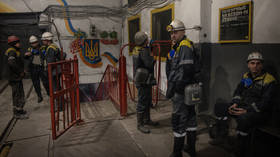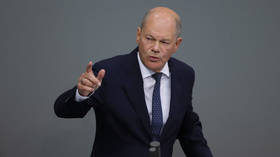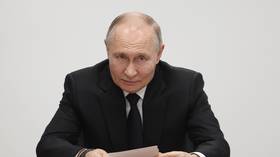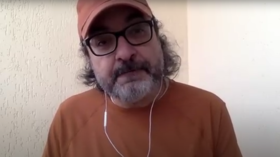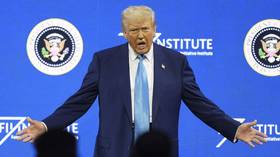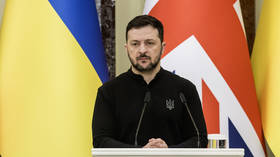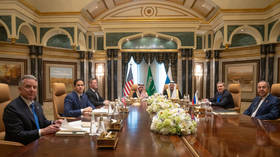Russia boosts gas supplies to Europe while transit deal with Ukraine in limbo
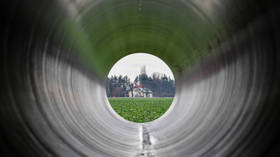
Russian energy major Gazprom plans to pump twice as much gas into European storage than last year, while Moscow and Kiev have not still agreed on the terms of a new transit contract.
Gazprom is planning to supply more than 11 billion cubic meters to storage facilities in Europe, the head of the company, Alexey Miller, told Russian President Vladimir Putin during their meeting on Monday.
“This is twice as much as last year’s level,” Miller pointed out. “We see that our European partners are pumping gas at high speed, and our Ukrainian colleagues are trying to do the same.”
Also on rt.com US-Russia gas war drives European energy prices to 10-year lowThe rush to stock up gas comes as the current 10-year transit contract is to expire on December 31, the head of Gazprom explained. Earlier this year, Moscow offered Kiev to extend the agreement for 12 months, but didn’t receive any response form the Ukrainian side.
Despite Russia’s Nord Stream 2 pipeline set to become operational by the end of the year, Ukraine still is a key transit route for Russian gas to Europe. Previous talks on the matter, including a meeting between the EU, Russia and Ukraine, failed to hammer out a deal. The next round of trilateral talks is scheduled for September 19, the EU Commission's Vice President for Energy Union announced.
“I am convinced that progress would send a strong positive signal to the market as well as consumers ahead of the winter season,” commissioner Maros Sefcovic wrote on Twitter.
Also on rt.com Ukraine’s ex-president Poroshenko siphoned off at least $8 billion, US businessman claimsMeanwhile, Gazprom says that the agreement on direct gas supply with Ukraine is even more important than one on gas transit. Kiev halted purchases of Russian natural gas in 2015 and since then has been importing reverse supplies from European nations, which come at higher price.
Ukrainian citizens bear the cost of this political decision, as last year prices for gas imported by Ukraine hit a record high. Miller stressed that their troubles could be eased if Russia and Ukraine finally come to an agreement. He expects that the price will be 25 percent lower than the current level.
For more stories on economy & finance visit RT's business section



